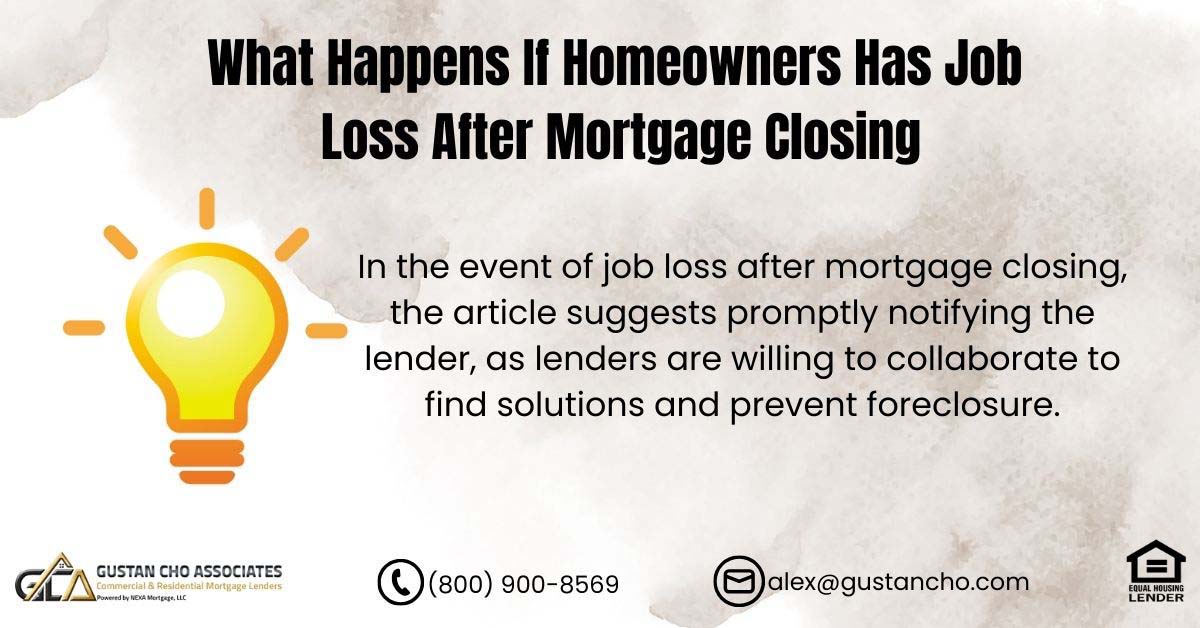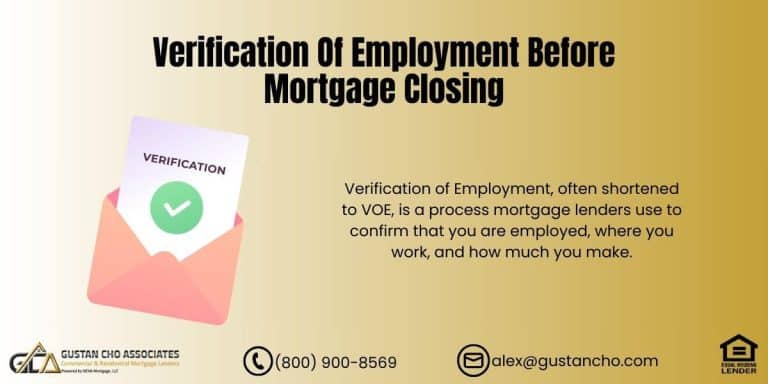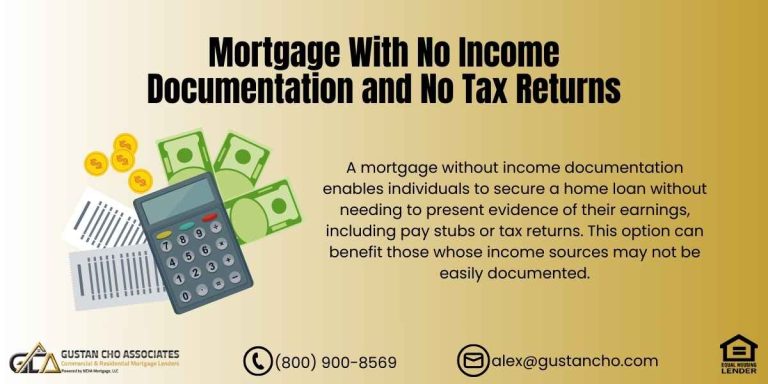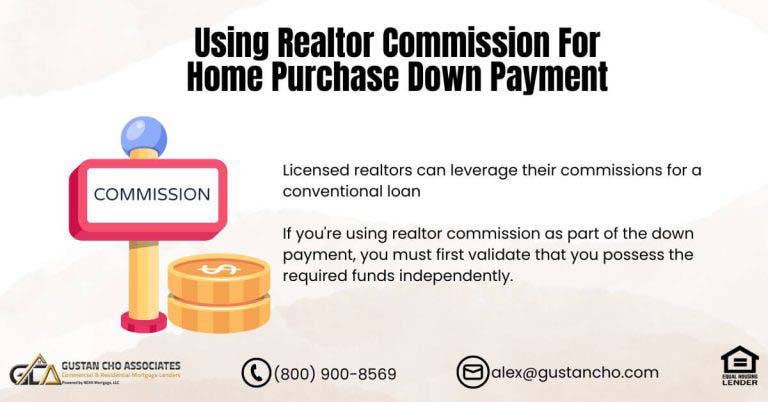This article delves into the implications and potential challenges homeowners may face in the unfortunate event of a job loss after mortgage closing. The focus is on understanding the repercussions and navigating the associated difficulties when individuals grapple with job loss after the mortgage closing process.
The residential mortgage lending sector has experienced a significant shift following the mortgage meltdown and the subsequent revamp of the mortgage industry. The days of no-documentation and stated income mortgage loans, which have been extinct for several years, seem unlikely to return.
The downfall of all sub-prime mortgage lenders has resulted in substantial changes to the rules and regulations governing residential mortgage lending. This transformation has had a lasting impact on the landscape, with notable implications for individuals, including the potential for job loss after mortgage closing.
The transformations have been so significant that hard money lenders are now compelled to comply with RESPA rules and other regulations overseeing residential mortgage lending. To avert potential mortgage crises and minimize foreclosures, the government has introduced a series of new rules.
This comprehensive regulatory structure has profoundly affected the entire real estate and mortgage lending sector, leading to a sudden standstill in the aftermath of the real estate and mortgage collapse. This halt has resulted in job loss after mortgage closing.
The plummeting real estate values, with some regions experiencing 50% or more declines, further exacerbated the situation. However, there is a silver lining as new lending guidelines and requirements were established to assist homebuyers with prior bankruptcies and foreclosures. Fortunately, in many parts of the country, real estate values have made a comeback, marking a positive turn of events in the aftermath of the upheavals in the industry.
The aftermath of the mortgage crisis saw a significant decline in real estate values, with some areas witnessing reductions of 50% or more. This downturn in the housing market had a profound impact, leading to job loss after mortgage closing.
Despite these challenges, there is a glimmer of hope, as new lending guidelines and requirements have been implemented to support homebuyers who have faced prior bankruptcies and foreclosures. The real estate market has shown signs of recovery in many regions across the country, indicating a positive shift in the industry’s landscape following the upheavals.
Speak With Our Loan Officer for Getting Mortgage Loans
Buying Home In High-Cost Areas
Many areas of California, such as the following, are considered high-cost areas. County loan limits in high-cost areas are higher:
- Los Angeles
- San Diego
- Irvine
- San Francisco
- San Jose
- Sacramento
- Malibu
- Pasadena
- Burbank
- Palm Springs
- Modesto
- La Jolla
- Lake Tahoe
- Oakland
- Santa Monica
- Santa Barbara
- Redlands
- Covina
- Santa Cruz
- Riverside
- And many other parts of California have almost recovered fully from the real estate market crash.
The most important factor in qualifying for a mortgage loan is income. If homeowners have job loss after mortgage closing, contact the lender immediately.
Buyers Can Have Bad And Qualify For Mortgage
Prospective homebuyers experiencing job loss after mortgage closing may still be eligible for a home loan if they maintain a stable and verifiable income expected to persist for the next three years. Conversely, those with an excellent credit history may face difficulties obtaining a mortgage if they lack a documented source of income.
Lenders place significant emphasis on the stability of a borrower’s financial standing and their capability to make timely mortgage payments following the closure of the mortgage deal. Borrowers must showcase job stability and the ability to sustain employment. This is crucial, as, without a dependable income, borrowers may struggle to meet their mortgage commitments, ultimately risking foreclosure.
It’s essential to understand that lenders are not engaged in real estate investment; instead, they strive to steer clear of foreclosure proceedings whenever possible. When homeowners encounter job loss after mortgage closing, lenders are open to cooperation and actively seek solutions to avert foreclosure.
Qualify For Mortgage Loans, Click Here
Job Loss After Mortgage Closing: Importance Of Verification Of Employment
Underwriters require a two-year employment history, two years of tax returns, two years of W-2s, the most recent 30 days’ paycheck stubs, and verification of employment for a specific purpose. The lender’s goal is to assess whether borrowers maintain a stable job and income that will remain secure over the next three years. This scrutiny is crucial to prevent mortgage loans from defaulting and facing foreclosure.
Job Loss After Mortgage Closing: Is Job Stable?
Lenders assess the stability of the job and ensure that all employment verifications pass successfully. The lender’s greatest concern is if the borrower experiences a job loss after the mortgage closing. However, borrowers should be more aware than the lender when it comes to verifying employment for income stability.
Those who perceive their job as uncertain or are contemplating a job change, or if their employer plans to sell the business, may consider delaying the closing on their home loan. Acquiring a new home entails significant responsibility, and it is crucial to ensure the stability of both job and income. Homeowners must be capable of meeting housing payments along with other financial obligations.
Notify Lender If You Have Job Loss After Mortgage Closing
Homeowners who experience job loss after closing on a mortgage should promptly contact their lender. It is crucial not to attempt making mortgage payments if uncertain about the ability to fulfill them entirely.
If there is any doubt about being able to afford the payments and it is realized at the last minute that they cannot be met, it is imperative to inform the lender’s servicing department immediately. Communicate that, despite being current on mortgage payments, a job loss has occurred. Lenders are more likely to collaborate with homeowners when they are notified promptly after a job loss following the mortgage closing.
Failing to inform mortgage lenders of job loss post-mortgage closing can lead to complications. Delaying notification, becoming delinquent, and missing payments before informing the lender reduces the likelihood of cooperation.
In the case of timely payments but a job loss, the lender may request the borrower to complete a personal financial statement and provide evidence of termination. Lenders may offer options such as a forbearance period until full-time employment is regained. Various solutions may be presented, with loan modification being one of them, especially if the new job has a substantially lower income.
Contact Lender If You Have Job Loss After Mortgage Closing
Loan Modification Process
Loan modifications will reduce monthly payments that you need to make to the lender where the lender may reduce the interest rate and/or extend the life of the loan:
- If borrowers regain employment and are making the same amount they were making from the previous employer, the lender may do a loan workout
- This is where they may roll the deficit of delinquent mortgage payments to the back of the mortgage loan and spread out the escrow shortage over 60 months
- Monthly mortgage payments may increase slightly due to making the escrow shortage payment but not by much
- Lenders do not want to foreclose the property
Lenders will do everything possible to work with borrowers in the event of a job loss after the mortgage closing.
Contact us at Gustan Cho Associates at 800-900-8569. Text us for a faster response. Or email us at alex@gustancho.com. The team at Gustan Cho Associates is available 7 days a week, on evenings, weekends, and holidays.
FAQ: Understanding Job Loss After Mortgage Closing
What are the potential challenges homeowners may face in the event of job loss after mortgage closing? Job loss after mortgage closing can lead to difficulties meeting mortgage payments, risking foreclosure. Lenders emphasize income stability to ensure borrowers can sustain their mortgage commitments.
How have regulations in the mortgage industry changed following the mortgage meltdown? The mortgage industry has undergone significant regulatory changes post-meltdown, with stricter rules to prevent crises and minimize foreclosures. Hard money lenders now comply with RESPA rules, and new lending guidelines support homebuyers with prior bankruptcies and foreclosures.
Can homeowners still qualify for a mortgage after experiencing job loss? Homebuyers facing job loss after mortgage closing may still qualify for a mortgage if they maintain stable and verifiable income expected to continue for the next three years. Lenders prioritize the stability of a borrower’s financial situation.
What steps should homeowners take if they experience job loss after closing on a mortgage? Homeowners should promptly notify their lender of any job loss post-mortgage closing and refrain from attempting mortgage payments if uncertain about affordability. Delaying notification or missing payments before informing the lender reduces cooperation likelihood.
How do lenders typically handle situations of job loss after mortgage closing? Lenders are often willing to collaborate with homeowners, offering solutions like forbearance periods or loan modifications until full-time employment is regained. Loan modifications may involve reducing interest rates or extending the loan term to alleviate financial strain.
What is the importance of verifying employment stability before closing on a mortgage? Verifying employment stability is crucial to ensure borrowers can meet mortgage commitments. Homeowners should assess job stability and income certainty before proceeding with a home loan to avoid complications post-closing.
What are some options available through loan modification in case of job loss after mortgage closing? Loan modifications may include reducing monthly payments, rolling delinquent payments to the back of the loan, or spreading escrow shortages over a period. Lenders aim to avoid foreclosure and work with borrowers to find feasible solutions.
Should homeowners in high-cost areas follow any specific guidelines regarding mortgage loans? Homebuyers in high-cost areas should ensure they meet income requirements and maintain stable employment, especially considering the potentially higher mortgage amounts. Speaking with a loan officer to understand specific guidelines for these areas is essential.
How can prospective homebuyers with bad credit still qualify for a mortgage? Homebuyers with bad credit may qualify for a mortgage by demonstrating stable and verifiable income over the next three years. Lenders prioritize income stability over credit history when assessing mortgage eligibility.
What regions have shown signs of recovery in the real estate market following the mortgage crisis? Many regions across the country, including parts of California like Los Angeles, San Francisco, and San Diego, have experienced significant recovery in real estate values, indicating a positive shift in the industry landscape.
This blog about What Happens If Homeowners Has Job Loss After Mortgage Closing was updated on January 29th, 2024.









